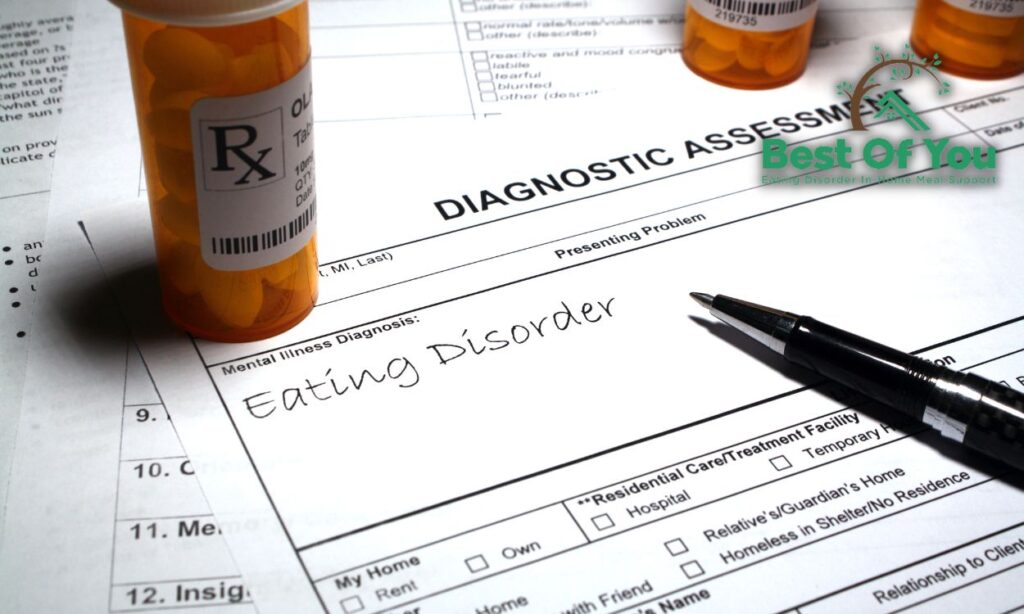Unraveling the Complexities of Eating Disorders
Eating disorders are serious and complex mental health conditions that affect millions of individuals worldwide, including over 1 million people in Canada. They involve a range of disordered eating behaviors, coupled with an intense preoccupation with food, weight, and body image. Eating disorders can have severe consequences on both physical and mental health, and often require professional intervention for successful recovery.
In this article, we will explore the different types of eating disorders, their causes, symptoms, and how to recognize them. If you or someone you care about is struggling with an eating disorder, the compassionate team at Best of You is here to help. Our experienced professionals are dedicated to supporting you throughout your recovery journey.
Types of Eating Disorders
There are several types of eating disorders, each characterized by distinct behaviors, thoughts, and feelings related to food and body image. The most common types include:
Anorexia nervosa: Anorexia nervosa is characterized by an intense fear of gaining weight, leading to severe food restriction, excessive weight loss, and a distorted body image. Individuals with anorexia nervosa often have an intense drive for thinness and may engage in compulsive exercise or other behaviors to control their weight.
Bulimia nervosa: Bulimia nervosa involves recurrent episodes of binge eating, during which an individual consumes large amounts of food in a short period, followed by compensatory behaviors to prevent weight gain, such as self-induced vomiting, misuse of laxatives, diuretics, or excessive exercise.
Binge eating disorder: Binge eating disorder is characterized by frequent episodes of consuming large amounts of food in a short period, often accompanied by feelings of loss of control, guilt, and shame. Unlike bulimia nervosa, individuals with binge eating disorder do not engage in compensatory behaviors after binge episodes.
Other specified feeding or eating disorders (OSFED): OSFED is a category that encompasses eating disorders that do not meet the full criteria for anorexia nervosa, bulimia nervosa, or binge eating disorder but still cause significant distress and impairment in daily functioning.
Causes and Risk Factors for Eating Disorders
Eating disorders are complex conditions with no single cause. Instead, they result from a combination of genetic, biological, psychological, and environmental factors. Some common risk factors include:
Family history: Having a family member with an eating disorder or other mental health condition may increase the risk of developing an eating disorder.
Personality traits: Certain personality traits, such as perfectionism, anxiety, or rigidity, may predispose individuals to develop eating disorders.
Social and cultural factors: Exposure to societal pressures to be thin, beauty ideals, or weight-related teasing can contribute to the development of eating disorders.
Traumatic experiences : Experiencing trauma, such as physical or sexual abuse, can increase the risk of developing an eating disorder as a coping mechanism.
Co-occurring mental health conditions: Eating disorders often coexist with other mental health issues, such as depression, anxiety, or obsessive-compulsive disorder (OCD).
Symptoms and Warning Signs of Eating Disorders
Recognizing the signs and symptoms of an eating disorder is crucial for early intervention and successful recovery. Common warning signs may include:
Preoccupation with food, weight, and body image: Individuals with eating disorders often obsess over their appearance, diet, and weight, frequently engaging in negative self-talk or comparing themselves to others.
Changes in eating habits: Eating disorders may manifest as noticeable changes in eating patterns, such as skipping meals, eating in secret, or avoiding certain food groups.
Emotional and behavioral changes: Mood swings, social withdrawal, irritability, and increased secrecy can be indicative of an eating disorder.
Physical symptoms: Unexplained weight loss or gain, frequent fluctuations in weight, dizziness, fainting, and signs of malnutrition are potential signs of an eating disorder.
Compulsive exercise: Engaging in excessive or compulsive exercise, even when injured or exhausted, can be a warning sign of an eating disorder.
Seek Help and Support from Best of You
If you or a loved one is experiencing symptoms of an eating disorder, it’s essential to seek professional help as soon as possible. The team at Best of You is dedicated to providing compassionate, evidence-based care to support you on your journey to recovery. Don’t wait – contact us today to learn more about our services and take the first step toward





